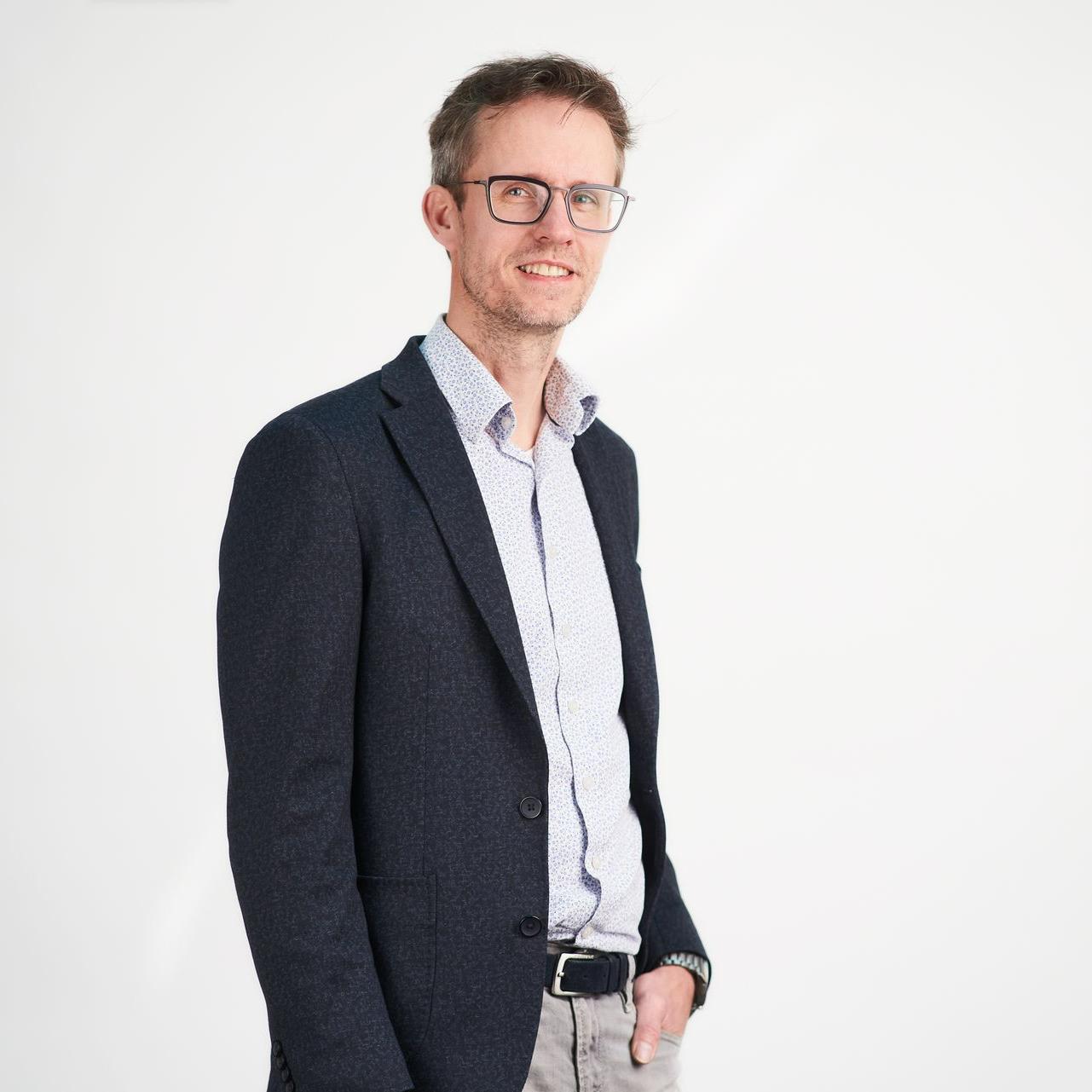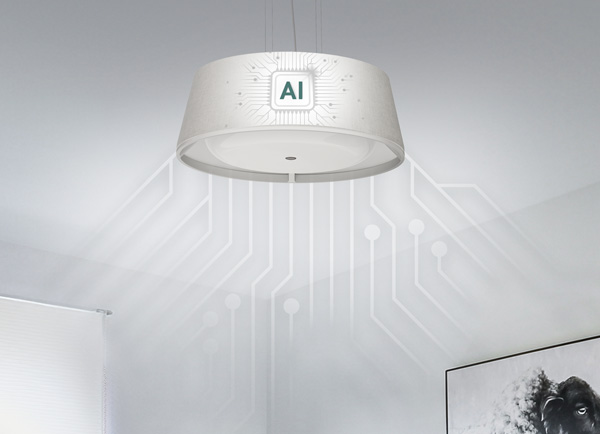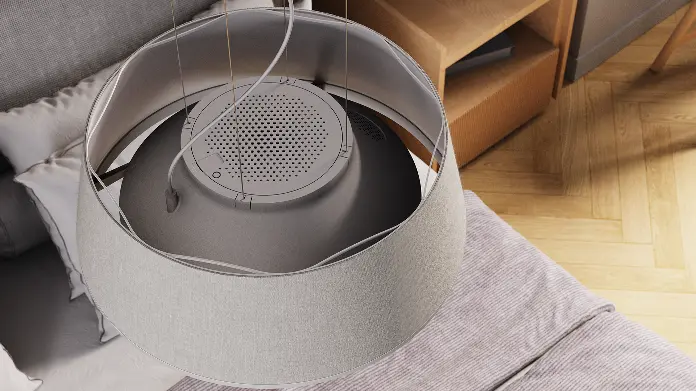In this blog series, we’re talking to Stijn Verrept, Nobi’s co-founder and CTO, who is strategically involved in designing the AI capabilities for the company’s Smart Light. In part 1 Stijn discusses the artificial intelligence (AI) capabilities of the Nobi light itself. In this last installment, he gives his thoughts on plans for future AI integrations in the Nobi light and how partnerships will play a key role in AI applications within the Nobi platform.

- Stijn Verrept, CTO en co-founder of Nobi
As we delve into the future, the integration of AI into healthcare applications holds immense potential, reshaping the industry in unprecedented ways. According to BCC Research AI in the remote patient monitoring market alone is expected to quadruple to $4.3 billion by 2027, indicating a massive stream of investment in this field.

Nobi’s AI-powered light is a shining example of the positive impact AI can have within the healthcare industry. The smart light engineered for fall detection and prevention is already revolutionizing elder care around the world—and future AI applications using the Nobi platform seem endless.
Are there plans for future AI integrations in the Nobi light?
While AI is currently used for visual interpretation and linking to consequences, Nobi is exploring additional AI applications for the future. One area of focus is leveraging sound AI to analyze audio data in the environment. By analyzing sound, Nobi could detect indicators of activities of daily living (ADLs) such as toilet flushes, tooth brushing, and showering, etc. These insights help build predictive models to monitor residents' activity levels, providing early warnings if a resident becomes less active, which can be a sign of health issues.
Sound data is also useful for detecting health indicators such as coughing, which can provide early signs of conditions like respiratory infections. This capability enables proactive intervention by care staff, potentially improving resident outcomes by addressing health issues early.
In terms of visual data, Nobi aims to enhance its predictive capabilities by analyzing residents' poses. By recognizing specific poses that indicate instability or a resident becoming unwell (e.g., holding onto a table for support), Nobi can alert care staff proactively, potentially preventing falls and reducing the risk of injuries.
Currently, the primary focus remains on providing effective and secure solutions that detect and prevent falls while enhancing residents' well-being and user experience. Nobi's visual AI continues to be a robust tool in ensuring the safety and independence of older adults by offering reliable fall detection and automated lighting to prevent disorientation at night.
Will Nobi form partnerships to develop future AI applications?
Yes, absolutely! At Nobi, we recognize that we aren’t experts in everything. To leverage specialized expertise, we aim to open up the Nobi platform to companies with expertise in various domains. For instance, we might collaborate with a company specializing in analyzing lung function based on audio data. When healthcare technologies work together efficiently, they can provide more significant benefits for healthcare workers, residents, and patients. That’s why Nobi makes it possible to link our smart lights with existing call systems, electronic patient records, and digital medical records.
Collaborating with external partners allows us to expand our AI capabilities while maintaining a clear focus on our key purpose. These partnerships may involve companies specializing in specific AI applications, such as cough detection or pulmonary testing. By integrating third-party AI solutions into its platform, Nobi aims to offer a broader range of services to its users while ensuring high standards of accuracy and reliability. This collaborative approach ensures that Nobi can continually enhance its offerings and address a wide range of health and safety needs for older adults.
How will other AI applications work within the Nobi platform?
Nobi envisions its platform as a marketplace for AI applications tailored to elder care. Similar to an app store, users can access and install AI applications that complement Nobi’s core functionality. These applications may range from health monitoring tools to fitness assessments, all seamlessly integrated into Nobi’s ecosystem. By offering a diverse selection of AI applications, Nobi aims to revolutionize the quality of care provided to residents while fostering innovation in the elder care industry as a whole.
What are the benefits of your partnership with Nvidia?
Nobi has a valuable partnership with Nvidia, the manufacturer of the processor used in the Nobi lights. Nvidia’s powerful technology enables AI processing at the edge, allowing Nobi to deliver sophisticated AI capabilities directly within its lights. This partnership is crucial for Nobi’s ability to provide advanced features while maintaining privacy and security. Read the full case study here.
As we stand on the cusp of a new era in healthcare, the integration of AI promises to usher in a paradigm shift, transforming the way we care for patients as well as diagnose and treat diseases. By harnessing the power of AI, we can unlock new insights, optimize clinical workflows, and ultimately improve patient outcomes on a global scale.
However, realizing the full potential of AI in healthcare requires a concerted effort from stakeholders across the world to address challenges, mitigate risks, and ensure that these technologies are deployed responsibly and equitably. Only then can we harness the transformative power of AI to build a healthier and more resilient future for all.
Visit Nobi at the UN AI For Good Global Summit
The organizers of the UN AI For Good Global Summit 2024 invited Nobi because they believe Nobi's smart lights are an inspiring example of how AI can have a big, positive impact and help address the world's biggest societal challenges.
The Summit will be held in Geneva, Switzerland, May 30-31, with the goal of identifying practical applications of AI to advance the U.N.’s Sustainable Development Goals and scale those solutions for global impact.


